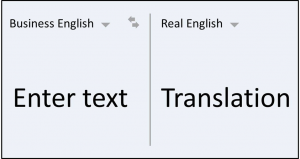Rebecca Lyles's Blog, page 2
May 21, 2016
Endorse me, you sweet endorsable you
 Sometimes it’s hard to find the line between social media for business and social media for personal interaction. Business sites take a dim view of users stalking each other or commenting, “I like your smile.” Unless you’re casting models for a toothpaste ad, that message is inappropriate in business communication.
Sometimes it’s hard to find the line between social media for business and social media for personal interaction. Business sites take a dim view of users stalking each other or commenting, “I like your smile.” Unless you’re casting models for a toothpaste ad, that message is inappropriate in business communication.
But if you’re looking for a new job or a better one, you probably need contacts, networking possibilities, sales prospects, and endorsements wherever you can find them.
Although you can set your profile preferences to ignore them, you probably get requests to endorse people you know. The requests can seem outrageous. A co-worker, for example, has less-than-zero skill in the area claimed in the request. When the question window pops up and asks, “Does ____ know about ____?” I’ve been known to say aloud, “Oh HELL no!” She appears to claim skill in what is, in fact, a major deficiency. But wait—there’s another possibility.
Business sites, like other social media (and that includes Facebook and online dating sites) make money by increasing participation. They send messages that hint, or outright claim, that you’re reaching out to someone or claiming a skill – without your knowledge. When a reply or the endorsement hits your Inbox, it seems unsolicited. You think, “Hmmm. Nice.” So you reply or endorse them in return, and so on and so on. More clicks, more ad exposure, more membership signups.
A key word in your profile can trigger an unsolicited endorsement request. You might have designed the cover for a book on Java, but would never seek endorsement as an expert programmer. How do you protect yourself from the appearance of unjustifiable boasting?
Don’t list skills in your profile or resume that you don’t have.
Go to your profile and turn off endorsement requests.
If you don’t want to turn them off completely, see if your profile allows you to control the skills you claim.
Finally, don’t judge people too harshly for endorsement requests that seem out of line. It’s entirely possible the person in the request has no knowledge of it and never claimed that skill.
Just to be on the safe side, I’m warning everyone. Even if you receive a notification, you may consider bogus any request to endorse me for:
Cooking
Sense of direction
Anything remotely athletic
Trust me – the software did it.
Like TextCPR on Facebook!
May 14, 2016
A special kind of dyslexia
 Words beginning with per- or pre- can tempt you to reverse letters, even if you don’t have dyslexia. Some cases seem related to regional pronunciations, and others are just laziness. A few of them are funny and, of course, you would never say them.
Words beginning with per- or pre- can tempt you to reverse letters, even if you don’t have dyslexia. Some cases seem related to regional pronunciations, and others are just laziness. A few of them are funny and, of course, you would never say them.
But others are probably lurking in your vocabulary somewhere and you might be surprised to learn their correct spellings and pronunciations.
How often have you heard someone say this:
I need to get my perscription refilled. (prescription)
This course has some perequisites. (prerequisites)
Do whatever you like – it’s your perogative. (prerogative)
Who can perdict the winner? (predict)
There’s a perponderance of corruption in the city council. (preponderance)
I just love blackberry perserves. (preserves)
And the reverse, in writing as well as in speaking:
The group will preform a Beethoven symphony. (perform)
The runners were covered with prespiration. (perspiration)
Line A must be prependicular to Line B. (perpendicular)
If you presist in this behavior, you will be punished. (persist)
I can’t help it – I’m so preturbed about the situation! (perturbed)
What are you – a prevert? (pervert)
More of these reversals happen in pronunciation than in writing, but I’ve seen several of them written. By people who should know better. Some could be typos, and a few will not trigger a Spellchecker alert because they are legitimate words. Preform, for example, is a word. It just doesn’t mean the same thing as perform. If you’re the least bit uncertain about a pre- or per- word, you might want to look it up before using it in a business presentation, a document, or even an email or Facebook post.
If you perfer to be preceived as percise, prehaps I can presuade you to take percautions before you become a prepetrator of this less-than-prefect practice, placing you in a percarious position … premanently.
But if you’re determined to insult someone, I must admit that “PREE-vert” has a deliciously nasty ring to it.
Like TextCPR on Facebook!
May 7, 2016
Wheelbarrels and rollycoasters
 I’ve never been a fan of baby talk, even when babies do it. It’s bad enough that parents (and grandparents) encourage it by laughing at the adorable tot’s consonant substitutions, but when they do it themselves, it sets a confusing example.
I’ve never been a fan of baby talk, even when babies do it. It’s bad enough that parents (and grandparents) encourage it by laughing at the adorable tot’s consonant substitutions, but when they do it themselves, it sets a confusing example.
Surely a child’s language development is seriously delayed every time he hears an adult say, “Aw, wook at him cute widdle toes …How old are you? Fwee?”
I’ve observed the same phenomenon when native English speakers, in trying to communicate with native Spanish speakers, speak English with (their idea of) a Spanish accent. It sounds ridiculous and is both confusing and condescending to the Spanish speaker. Maybe adults think speaking in baby talk makes them somehow more understandable to the child. I always imagine babies thinking, “What the is wrong with you?”
Despite years of hearing baby talk, many children grow up to speak correctly. Gradually they listen to adults on television, teachers in their schools, speech therapists (surprise!) … and they figure out most of it. But some words have a harder time than others in making the transition from playpen to board room.
A shocking number of adults never completely graduated from baby talk, even if they don’t realize it. Here are three words that, when mispronounced, suggest the speaker needs a nap:
Wheelbarrow (not wheelbarrel or wheelborrow). It contains neither the word barrel nor the word borrow. The barrow part rhymes with narrow.
Roller coaster (not rolly coaster). The fact that it is, indeed, rolly does not excuse putting that word in its name.
Kindergarten (not kindygarden or kinnygarden). It’s from German, where kinder means children. But that doesn’t give us a pass to mangle kinder and half-translate the rest to garden—even though that’s literally what it means.
The cuteness associated with baby talk decreases rapidly after about the age of two, and is completely gone by the time you start elementary school. So if you’re still saying words like this, don’t be surprised if your co-workers (instead of gathering for cake in the break room) chip in and buy you a dictionary for your birfday.
Like TextCPR on Facebook!
April 30, 2016
Sight, site, cite
 Yes, that’s a real headline. What’s wrong with it?
Yes, that’s a real headline. What’s wrong with it?
Sight, site, and cite—two nouns and a verb, all with identical pronunciations but different meanings. They’re called homophones [https://en.wikipedia.org/wiki/Homophone].
A quirk of English that people who write newspaper headlines are supposed to know about. [http://www.columbia.edu/itc/journalis...].
To set the record straight, here are some definitions:
Sight – the ability to see or something that is seen
[http://www.merriam-webster.com/dictio...].
Site – a physical or Internet location
[http://dictionary.cambridge.org/us/di...].
Cite – to quote a source as proof or confirmation (notice anything about this post?)
[https://www.google.com/?gws_rd=ssl#q=...].
A person with the power of sight can see a sight, perhaps a building site or a website, then cite a published picture to verify its existence.
Some of these variations have nothing to do with the root words:
Insight – an intuitive understanding of a person or thing [http://www.dictionary.com/browse/insight].
In-site (note hyphen) – within a particular Internet location
[https://www.wordnik.com/words/in-site].
Incite – to encourage violent or unlawful behavior
[https://www.google.com/?gws_rd=ssl#q=...].
If a programmer does not have insight into the peculiarities of in-site software navigation, the resulting frustration could incite users to write nasty reviews.
Other variations have distant ties to the original root meanings:
Oversight – watchful or responsible care. Also a failure to notice something [http://www.thefreedictionary.com/over...].
Oversite – (construction) a layer of concrete on the ground, below a slab of flooring [http://www.oxforddictionaries.com/def...].
Overcite – to excessively quote footnotes, sources, or links to outside articles (what kind of moron would do that?)
[http://www.yourdictionary.com/overcite].
Despite careful oversight of the construction process, an oversight can occur, allowing a flaw in the oversite and leading to a lawsuit in which the attorney will inevitably overcite the case.
If you’re not talking about a layer of concrete on the ground under the subflooring, oversite is the wrong word. (See newspaper headline illustration. It should have said oversight.)
If you’re still reading, congratulations!
By now you’re also painfully aware of the single correct usage of the word overcite. The user-hostile1 practice of overciting infuriates and annoys the reader2. It reduces readability to almost zero3.
1 User-hostile is the opposite of user-friendly.
2 That would be you.
3 Well, not absolutely zero because you are still reading
But unless you react to them by repeatedly pounding your head on a slab of concrete under the floor, neither oversite nor overcite has anything to do with concussions.
Like TextCPR on Facebook!
April 23, 2016
Case of the missing zh
 I get it. French words are mysterious and unpronounceable. Half the letters are silent, and often it’s hard to tell which ones they are. We Americanize some French words, but not others.
I get it. French words are mysterious and unpronounceable. Half the letters are silent, and often it’s hard to tell which ones they are. We Americanize some French words, but not others.
The most thankless job must be teaching French pronunciation to teenagers in the Midwest. “Shape your mouth as if you were saying oooh, but then say eeee. And there’s no state called Illinoiz.”
But it’s baffling when we refuse to make some sounds … just because.
Exhibit A: The zh sound at the end of concierge. I’ve heard many people pronounce it conciere, as if the final ge were silent.
Exhibit B: It’s not as if Americans can’t make that sound. It occurs in dozens of English words, and many of those words did not come from French. Few people have trouble pronouncing the sound in measure, casual, seizure, television, or amnesia.
In some regions of the US, the zh sound is hardened. At least it’s not ignored.
Where’s your car?
In the grodge.
What color’s your new sofa?
Baidge.
Whatcha doin’ with them flowers?
Makin’ a COR-sodge.
Many people swear they have heard concierge pronounced conciere in hotels, by people who work there and they should know. News flash! They don’t. (Know, that is.) Many tradesmen have been known to string bob wire and build masonary walls.
I could almost understand pronouncing it con-see-AIRDGE. But if you insist on pronouncing it without the zh sound, then I must insist that you go to a spa for a massa, gather your entoura, and take a trip to Baton Rou.
Bon voya.
Like TextCPR on Facebook!
April 16, 2016
Pet peeves and sticky wickets
 Many of us have grammar or English usage pet peeves. One of mine is just between you and I. Having a pet peeve is fine. If you plan to go around ranting about it though, you might want to make sure it’s wrong.
Many of us have grammar or English usage pet peeves. One of mine is just between you and I. Having a pet peeve is fine. If you plan to go around ranting about it though, you might want to make sure it’s wrong.
I once knew a man who was skilled at flying airplanes, but his pet peeve was the construction, “I gave her a present.” He proudly insisted it was incorrect grammar and should always be, “I gave a present to her.” Apparently they don’t teach you about indirect objects in Airline Captain School.
Paul, a former co-worker of mine, disliked the superfluous of, as in “He’s so good of an editor that we should hire him.” He cleverly worked one into every email as a joke.
The superfluous of goof occurs in a noun phrase when you compare something using as, too, how, or so. The word of follows the adjective in the phrase. But of is a preposition, and it has no function in a noun phrase. Although it sounds awkward, most of us aren’t sure why it’s wrong—or worse yet—what to do about it. That’s the sticky wicket part. In most cases, you just leave out the word of. But that creates a sentence that, while correct, sounds uppity or pretentious to some people:
He’s so good an editor that we should hire him.
How do you express the same thought correctly without sounding pompous? Here are some problematic sentences and a few ways to improve them:
She’s as good of a dancer as any of the others.
She’s as good as any of the other dancers.
She dances as well as any of the others.
How great of a quarterback is he?
How great is he as a quarterback?
As quarterbacks go, how great is he?
You have too negative of an attitude.
Your attitude is too negative.
Try to be more positive.
We had so good of a time at the concert!
We had such a good time at the concert!
What a good time we had at the concert!
The superfluous of is one of the easiest sticky wickets to write around. Don’t get stuck in an imaginary corner when the way out is so simple.
This one’s for you, Paul. So funny of a guy!
Like TextCPR on Facebook!
April 9, 2016
Are we getting dumber?
 Statistics show that American children are falling behind their counterparts in other countries. Math scores, language skills, knowledge of science and history … our future would seem to be in the hands of the ill-prepared and under-educated. “They” say our youngsters’ minds have been so numbed by video games and junk food that we’re all doomed.
Statistics show that American children are falling behind their counterparts in other countries. Math scores, language skills, knowledge of science and history … our future would seem to be in the hands of the ill-prepared and under-educated. “They” say our youngsters’ minds have been so numbed by video games and junk food that we’re all doomed.
Really?
As adults, we’d like to think our generations were smarter. If that’s true, why do we seek help from eight-year-olds to program our iPhones and DVRs? Perhaps children are becoming smart in different ways.
People have always poked fun at village idiots. But Facebook, Twitter, and online comment boxes provide access to millions of them with a single click, swipe, or tap. It’s possible that Autocorrect was responsible for some of these, but Twitter has given us:
I can never pay attention when I do my homework I must have 80HD….
Every year we learn about the hollow cost in school….
Rosetta Stone did not sit on that bus for you to be….
Ima give em a minute then I tell em good writtens….
OK, so these comments demonstrate a shocking lack of spelling, grammar, history, and common sense. Maybe it was always out there, but we just couldn’t see it. The Internet is a super-magnifying reflective surface. You think you look pretty good, ready to walk out the door. Then you catch a glimpse of yourself in the mirror with every enlarged wrinkle, spot, and imperfection, and want to go back to bed.
Maybe our memories are a little airbrushed because we saw what we wanted to see. Schools emphasized math, spelling, and other basic skills. No calculators, spelling checkers, or instant encyclopedias for us! We learned to work square roots by hand and compose paragraphs of more than 140 characters. Then again, we didn’t need instant mental recall of invisible decision trees involving the nested processes and hierarchical operations for hundreds of apps, steps, and key sequences.
Still, it would be nice if every child learned to spell and construct a decent sentence. It might not make them smarter, but it would help with their selfie steam.
Like TextCPR on Facebook!
April 2, 2016
English-to-English translation
 Let’s pretend for a minute that everyone in your company speaks the same kind of flawless English.
Let’s pretend for a minute that everyone in your company speaks the same kind of flawless English.
No one is from a different part of the country, no one is from England or Canada or Australia. You take great care to write clearly, in a way that everyone understands.
News flash: Someone is going to misunderstand.
American business is infected, not only with strange idioms, but also with the idiomatic use of common words. As a result, even native English speakers interpret them differently. Now add the complexity (and reality) of regional idioms and cultural references, second- and third-language English speakers, and it’s no wonder we don’t understand each other.
In this example, the italicized words (many of which you probably use all the time) are potentially ambiguous:
While our budgets are set, we may not count this spend until next quarter, as all factors have not been considered. Since policy review has begun, leverage existing guidelines until further notice. Should you have any questions, contact your manager.
Here’s why they are problematic, and what you can say instead:
While can imply a time relationship – during or simultaneously. In this sentence, it means although.
May can imply permission. In this sentence, it means a condition or possibility. Use might.
Spend is a verb. This trendy biz-speak use of it as a noun is tiresome. Say cost or expenditure.
As can imply a comparison or time relationship – like, or at the same time. In this sentence it means because.
Since can imply in the intervening time. In this sentence it means because.
Leverage means to use borrowed capital for an investment, expecting profits made to be greater than the interest. Another trendy idiom that simply means use.
Should implies obligation or correctness. In this case, it means if.
Most of these are not grammatical mistakes. Some of them are listed in dictionaries as acceptable, though not preferred. The problem is the connotations they carry and how people interpret them.
So, even if your company is not multi-national and all of your customers or employees have lived their entire lives within a fifty-mile radius, remember how easy it is to confuse each other.
Maybe translation software needs a category called Business English to Real English.
Like TextCPR on Facebook!
March 26, 2016
The decimate debate
 Grammar and usage purists like to argue about what is correct and what isn’t. But unlike simple computational math, English embraces shades of gray between black and white. Accepted usage constantly changes, as do the sources cited as final authority.
Grammar and usage purists like to argue about what is correct and what isn’t. But unlike simple computational math, English embraces shades of gray between black and white. Accepted usage constantly changes, as do the sources cited as final authority.
That’s why we can program a calculator to find a multiply-by-zero error buried in a complicated proof, but we can’t agree on the rules for an infallible grammar checker.
The original meanings of many Latin-based words, for example, have evolved over time. Hundreds of years ago, the word decimate referred to the killing of one-tenth (from the Latin, deca-) of a Roman legion as punishment for disloyalty or cowardice. Now the word is used to mean, in a general sense, kill, destroy, or eliminate a large portion.
A reporter announces that a tornado has decimated a small town, and critics come out of the woodwork to snipe, “Oh really? Exactly one-tenth of the houses were destroyed?” They often suggest devastated as a better word choice. Although both words can be used to describe property damage, devastate can also connote overwhelming shock or grief: “The residents of the small town were devastated by their loss.”
Unless your audience includes Grammar Police types, you’re probably safe with either decimate or devastate in reference to significant destruction. You could even say, “A nasty flu epidemic decimated (or devastated) our team just before the championship game.” But beware of a third word that sounds similar to, but is not interchangeable with, the first two: desecrate (to violate or disrespect a sacred place or thing).
I once read an article that described a storm as desecrating a town. Unless the storm sprayed racist graffiti on a holy shrine, I’m guessing the writer meant decimate.
Just remember the story of The Three Little Pigs. The big, bad wolf did not decimate, devastate, or desecrate any of the pigs’ houses. So if your dwelling falls victim to a violent wind, you might just want to say:
It huffed and it puffed and it blew my house down.
Like TextCPR on Facebook!
March 19, 2016
Hear it spoken
 Television reporters probably don’t get the luxury of rehearsing what they read on the teleprompter, and I suppose it’s inevitable that an unfamiliar word will pop up. Still, one has to wonder where some reporters went to school and how they’ve avoided learning to pronounce relatively common words.
Television reporters probably don’t get the luxury of rehearsing what they read on the teleprompter, and I suppose it’s inevitable that an unfamiliar word will pop up. Still, one has to wonder where some reporters went to school and how they’ve avoided learning to pronounce relatively common words.
Here are three on-air missteps I’ve seen in just the past month:
Police found a “cash-AY” of weapons in the apartment…
The word on the screen was most likely cache, (pronounced CASH, with no accent mark), which means a hidden supply or reserve. If the reporter read cache and thought cachet, meaning stature or prestige, she should have known the word did not fit the story.
It’s hard to imagine that a communications professional would not know this one, but I also heard a young reporter read:
The effects are “SUB-tull” but researchers are hopeful that…
Subtle? I know there is a Slippery Rock University, but this one must have graduated from Under a Rock University. How can you grow to adulthood and think the “b” in subtle is pronounced? And, no, the reporter was not from another culture or language background.
But the worst, and—I must admit—funniest blunder was committed by the reporter who stared at the prompter and announced:
This might go down in the “AY-nulls” of history as the worst prank ever…
That’s right, anals. Not annals, records of events, but anals. It was the best laugh I’d had all day. Even if the error was in the teleprompter text, how can your brain lag so far behind your mouth that you don’t see that coming in time to self-correct?
Most of us are not expected to do cold reads on camera, under studio lights, intense pressure, and public scrutiny. But we might be asked to read copy that someone else wrote in a business or organizational setting. My advice? Scan through it quickly for land mines. If there’s a misspelled word that changes the meaning, be prepared to say the right word. If there’s word you’ve never heard spoken—and aren’t sure about—don’t guess in front of your audience. Ask the writer or look it up on your phone.
And go down in the annals of history.
Like TextCPR on Facebook!



